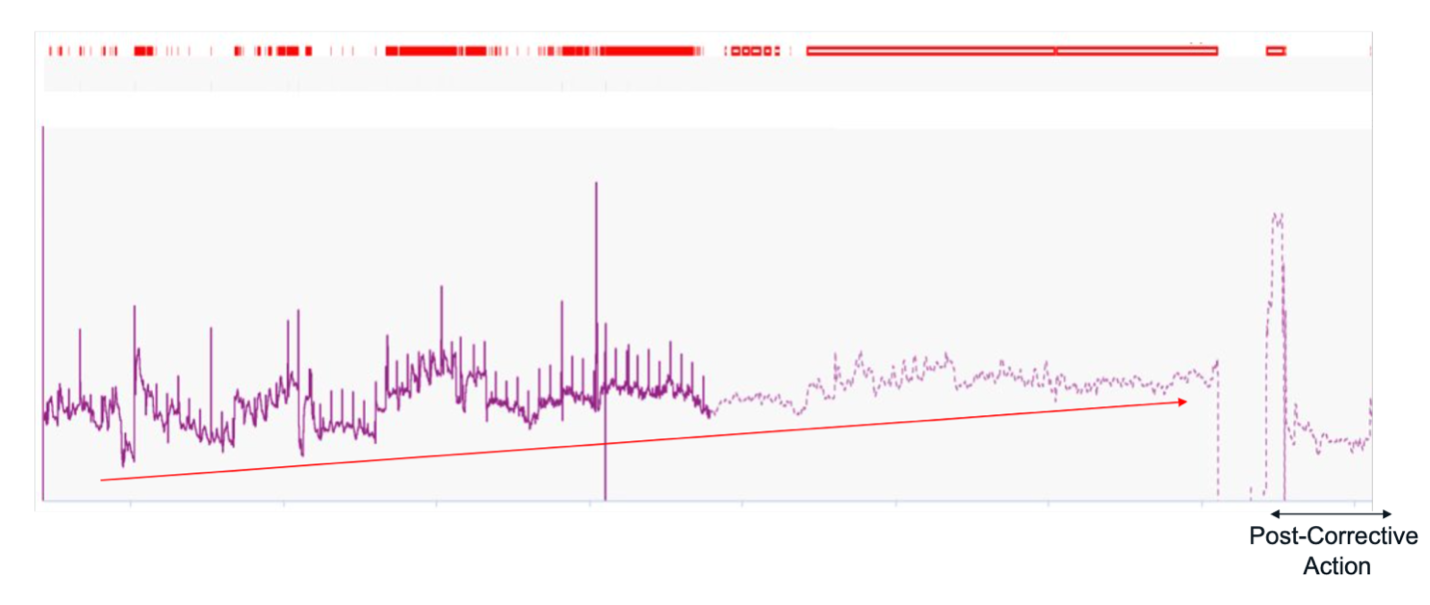
Fostering a more sustainable industrial future with Seeq
An Accenture study reveals that only 18% of companies are on track to meet net-zero emissions by 2050, despite 77% reducing operational emissions intensity. While progress is slow, companies are leveraging digital technologies to enhance sustainability efforts. Over the past decade, manufacturers have increasingly relied on advanced analytics platforms to help reduce emissions by streamlining data access, automating regulatory reporting, improving energy efficiency, and minimizing waste.
However, many companies still struggle with the fundamentals of emissions reduction, lacking clear roadmaps for decarbonization. Achieving net-zero goals requires a multi-pronged approach, including key decarbonization levers such as transitioning to renewable energy, optimizing energy use, adopting innovative business models, and influencing behavior changes among employees and customers.
From real-time emissions measurement to forecasting the impact of key levers and automating reporting, innovative technologies, like Seeq, empower processors to track critical sustainability metrics and drive progress toward net-zero.
Data challenges
Industrial organizations often face challenges in maintaining compliance with evolving industry standards and regulatory reporting because of disparate data sources spread across equipment, sites, and global operations. Without a unified system, integrating data from process historians, lab information management, enterprise resource planning, and manufacturing execution systems is difficult, complicating emissions and efficiency reporting.
Seeq addresses this issue by enabling real-time data connectivity to multiple systems without moving or copying the data out of systems of record. The platform allows users to query data on demand, ensuring seamless operational technology integration while maintaining data integrity.
Additionally, effective emissions monitoring and reporting require integrating various tools, such as reporting, supplier management, and life cycle assessment software. These integrations allow different roles across the enterprise to access data at the appropriate levels to make data driven decisions about their operations. Seeq’s extensibility capabilities allow the platform to connect to multiple solutions that provide integration with corporate reporting layers like Microsoft’s Sustainability Manager. These integrations empower companies to access operational data from their sites and cleanse and contextualize it. Subject matter experts can then monitor process efficiency, assess patterns, conduct root cause analyses, and automate reporting up to corporate and regulatory levels.
Streamlining regulatory reporting with Seeq
Historically, challenges in accessing, cleansing, and aggregating data for regulatory reporting have led many companies to report emissions only on a monthly or quarterly basis. This approach makes it difficult to actively manage emissions during operations, as the summarized figures provided limited insight into root causes, hindering timely identification and mitigation efforts. With Seeq, manufacturers can streamline regulatory reporting.
For example, midstream oil and gas operator Kinder Morgan used Seeq to connect to data from its continuous emissions monitoring systems and other systems to generate emissions calculations, then compare them against semi-annual and annual reporting. The legacy process resulted in a delay of over a month between the occurrence of potential deviations and their subsequent confirmation. Since implementing Seeq, the company’s frontline personnel can monitor daily emissions, accelerating root cause investigations, providing more detailed troubleshooting information, and prompting swifter corrective actions.
In addition to significantly reducing the time required to complete monthly emissions calculations, semi-annual reports, and GHG reconciliation, this new reporting process has helped the company increase process efficiency and decrease total emissions. Learn more by viewing Kinder Morgan’s session at Conneqt 2024.

Enhancing efficiency with Seeq
Digital technologies offer substantial opportunities to improve operational efficiency and reduce environmental impact. The automated emissions reporting described above can provide valuable insights that enable engineering teams to implement continuous improvement initiatives. Seeq can be utilized to help industrial organizations lower emissions by optimizing processes and minimizing activities such as flaring, blowdowns, and steam venting.
In another use case, Aker BP, a Norwegian oil and gas company, successfully implemented Seeq to optimize efficiency of gas turbines in their fleet. The team uses a monitoring solution within Seeq, starting with the processing of sensor data collected in the field. This data is then cleansed, analyzed, and used to develop delta pressure (dP) predictive models. Turbine emissions vary directly with dP, making it crucial to limit the value.
By comparing predicted dP against actual values and considering the costs associated with performance degradation, the team can identify optimal air filter replacement intervals. The prediction is then scaled across assets. The initial deployment of this monitoring solution reduced CO2 emissions by 10,000 tonnes per year across six assets. Additionally, implementing Seeq empowered the company to transition from calendar-based maintenance to condition-based maintenance for their gas turbines, facilitating further operational optimization. Learn more by viewing Aker BP’s session at Conneqt 2024.

Moving forward
Seeq can help industrial organizations understand and significantly curb their industrial carbon emissions, especially when implemented at scale. However, successful integration requires workforce buy-in and proper training. This alignment enables teams to leverage innovative solutions and garner enterprise-wide access to actionable insights, optimizing data utilization, enhancing efficiency, and strengthening sustainability efforts.
As the 2050 net-zero deadline nears, digital transformation is crucial. Analytics advancements help automate reporting, minimize waste, and drive continuous improvement, making them essential for achieving ambitious environmental goals and fostering a more sustainable industrial future.
If you are ready to discuss how Seeq can improve your operations and shape a more sustainable future, please contact us to speak with one of our industry experts and schedule a demo today.